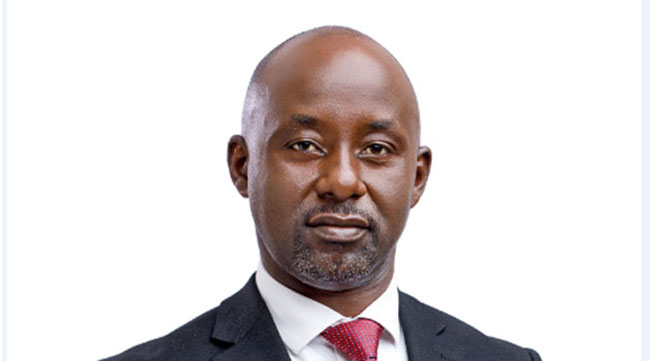Equity Bank Uganda Limited was created in 2008 when the Equity Group Holdings Limited purchased Uganda Microfinance Limited, a Tier II, Ugandan microfinance company for an all-share price of US$27 million.
Equity Bank (Uganda) launched under its new brand on 30 March 2009.
Since 2009, the bank has been one of the fastest growing financial institutions in Uganda, with a large network of 51 branches, over 7,000 EquiDuukas, 1,279 POS Terminal and over 50 ATMs spread across the country.
Half of the equity bank branches are located in Central and Greater Kampala, serving over 1,800,000 customers having deployed a number of Alternate Business Channels to enhance its product and service delivery.
The management adopted an approach of financial inclusion by opening its doors to customers across the financial pyramid.
It also engaged in strategic partnerships with telecoms, utility companies, local government, religious bodies, and third- tier financial institutions which have enabled it thrive through technology adoption, faster access to finance and improved play in the growing cross-border opportunities following the recent revitalization of the East Africa Community (EAC).
The Bank plays a pivotal role in facilitating trade by providing a gateway from Kenya to the quickly growing economies of Rwanda, Burundi, Democratic Republic of Congo and South Sudan. Improved performance and growth has resulted in improved customer relationships and better regulatory ratings.
A year after its launch, Equity bank scooped “Employer of the Year Award” having employed over 2000 Ugandans.
By 2015, Equity was among the top ten banks in Uganda in Uganda in terms of profitability and customer deposits.
The bank has indeed registered success with statistics indicating that it is currently in the top five.
However, the tables are turning, the bank’s profits have reduced and continue to reduce an indication that the business is nosediving.
What went wrong?
It is usually an African tendency that empires begin to crumble when they expand. Could it be the case with Equity Bank?
This website has learned that some decisions made by the top management have affected the bank, for example the decision to lend Ugandan scientist Mathias Magoola $100 million to build DeiPharma factory in Matugga, Wakiso district left the financial institution bleeding.
Magoola after convincing Equity Group (both Kenya and Uganda) he had hoped the vaccine center would by now start operations and be able to recoup investment and repay the money.
He has since defaulted, throwing the institution into total disarray on whether the loan facility should be categorised as non-performing.
The $100m loan was negotiated by Kenyan President William Ruto through Equity Group Holdings (Kenya), which is the mother company.
By October 2022, the loan had been extended to Dei Biopharma manufacturing facility for construction, importation of Hi-Tech Medical Equipment and machines as well as working capital support.
Today, only unfinished structures are abandoned at the site in Matugga as Magoola seeks more shs 400 billion to complete the project.
Our sources in the bank revealed that the reason Magoola has failed to service the loan, nor finish the buildings is because he didn’t receive the amount ($100 million loan) as reported by Equity management and media.
“The bigger portion was taken by brokers and the bank itself. That is why Magoola is stranded. He has no Money to complete the project and begin earning. And he has no funds to service the debt,” a source said.
Because $100 million was a lot of money, (approximately she 400 billion) Equity depleted its coffers and its net profit for 2022 was reduced by 46.7%, from shs 86 billion to shs 45.8 billion.
This was largely because the bank’s non-performing loans increased by more than three times from shs 78.8 billion to shs 277.8 billion. Non Performing Loans (NPLs) are loans whose repayment is doubtful although some can and usually get repaid.
So banks are tasked by the Central Bank to make a provision for them, in case they do not get paid. This provisioning is treated as an expense. It is this provisioning that ate into Equity’s profitability. Thus, while total income grew by 22.6% from shs 382.7 billion to shs 469.2 billion Provisions for bad and doubtful debts increased from shs 25.7 billion to shs 90.7 billion. This was the biggest cause of the reduction in profitability.
Contacted for a comment on the status of Magoola’s loan and whether the bank has plans of recovering the money, Equity bank CEO Anthony Kituuka declined saying the bank doesn’t discuss client relations in the media.
“We don’t make comments in the media on clients or any business that they may or may not be transacting with the bank due to confidentiality restriction,” he said.
The loan which was processed at the end of last year, source say could have been one of the major reasons, the managing director (then) Samuel Kirubi was replaced by Kituuka.

Litigations
The bank has also spent heavily on commercial litigation- paying legal fees, costs and damages.
At the end of last year Equity, according to our findings, had broken the record as the most sued bank battling 300 commercial litigations across the country.
The 300 Court cases which have accumulated in the last 5 years include fraud, mismanagement, corruption related, aiding money laundering, among others.
But for a bank like Equity accumulating all these cases can be seen as an anomaly given that the bank was as of 2019, in the 8th spot in market share.
It should be noted that banks are supposed to be the most trusted institutions. In fact, their existence is built on trust.
One can ask that for all these cases to accumulate, is it a case of negligent bank staff and lack of integrity?